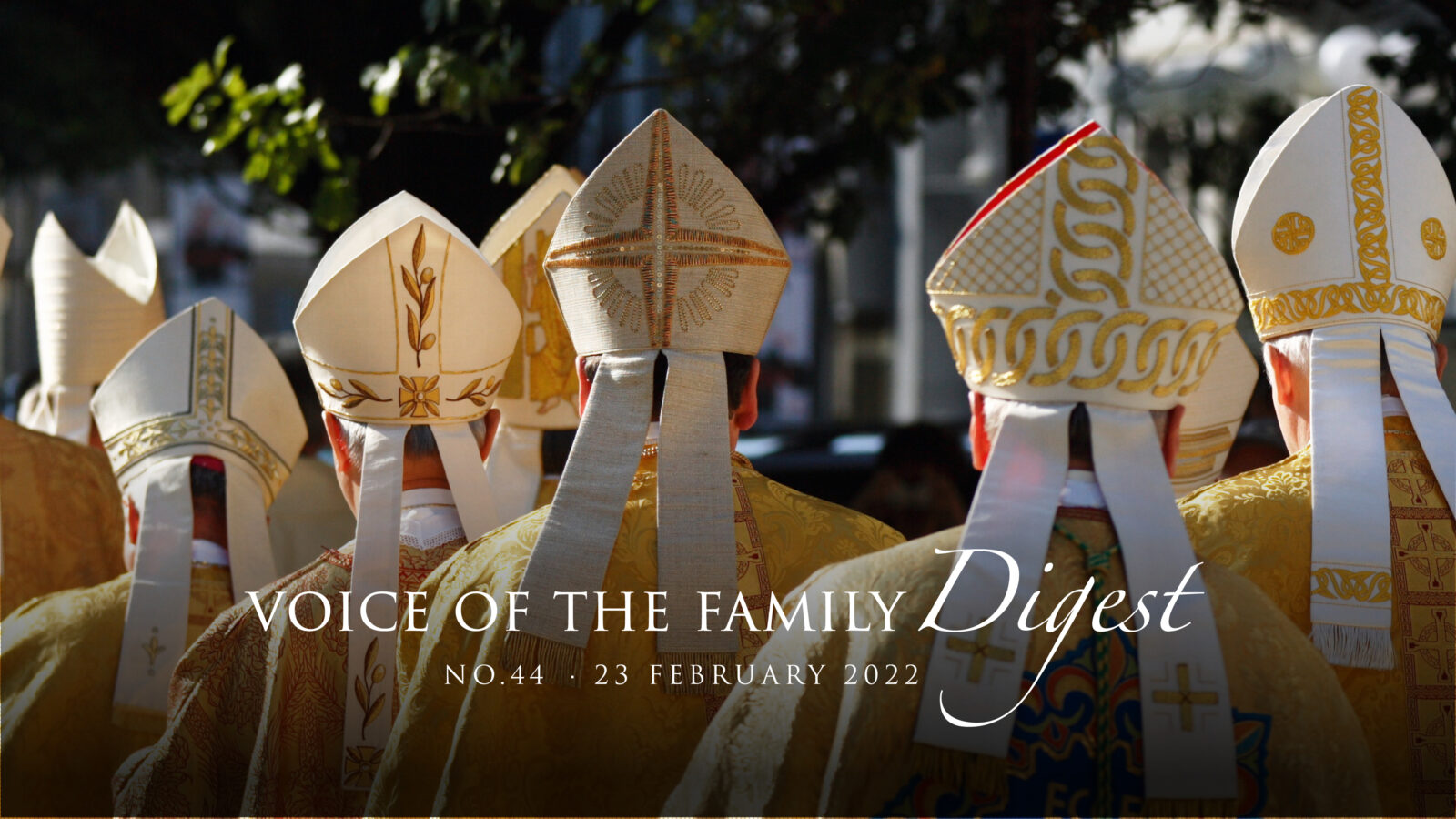Modernists of yesterday and today
23 February 2022

by Roberto de Mattei
At present, I am rereading a beautiful novel, Le Démon de midi by Paul Bourget, who lived between 1852 and 1935, and was the author of many books. Le Démon de midi (“The Noonday Devil”), published in 1914 and recently reprinted in Italian by publisher, Marco Solfanelli, is in my opinion the most beautiful.
The narrative is set in the years of the modernist crisis and follows two characters: a traditionalist intellectual and a modernist priest, both of whom succumb, by different means, to the temptations of the “noonday devil” – the demon spoken of in Psalm 90 who tempts those who have crossed the threshold of forty and find themselves at the midpoint of life.
The theme of the novel is the relationship between ideas and behaviours: how ideas influence behaviours and behaviours ideas. Hence the famous saying of Paul Bourget which closes the book: “One must live as one thinks, otherwise one ends up thinking as one lives!” This is why truth and life are inseparable in Christianity. Christianity is doctrine lived.
Among the many striking things about Bourget’s novel is the religious programme of the priest character, Fr Fauchon, who sinks into apostasy after abandoning orthodoxy. For Fr Fauchon, the future that was held in store for the Church was “the revision of the sacred texts by a committee made up of representatives of the various Christian confessions; the unification of rites with the use of the national language of each country in the ceremonies; the marriage of priests.” He continues: “The Church thus reformed would have to undertake an immense refoundation of society in order to realise the evangelical ideal of a universal Democracy” (p. 148).
Also, one of Fr Fauchon’s disciples presents the manifesto of modernism:
“We have, under the direction of our teacher (Fauchon), inaugurated a Catholic sect – for we remain Catholics – but a simplified sect, or rather, if I may say so, purified, brought back to the rites of the primitive Church. That is why our little communion is called ‘Catacomb’ (…) We believe that Christ is, above all, a Life. Christ is not demonstrated, but felt. This admirable phrase of Fr Fauchon’s is our motto. But if He is alive, He is evolving, and His field of evolution is the Church; we believe that this evolution will continue all the way to universal salvation. We therefore do not admit hell. As at the time of the catacombs, priests are elected by the faithful, of whom they are nothing but delegates, because each believer is a living member of the eternal Priest, who is Our Lord. We want our priests to be able to take wives. You see that we are truly in the Catacomb. We want the Mass as it was said in the early days, in the vernacular” (pp. 195-196).
These words were written more than a century ago and were not the author’s fantasies: they described the modernist project. Modernism was condemned and capsized by Saint Pius X, only to resurface aggressively in the second half of the twentieth century – the years of the Second Vatican Council. Over the last fifty years, this project has become the reality of the Church.
The new rite of the Mass, celebrated in the national languages, has been in force since 1969. And today we learn that the assembly of German bishops, meeting in Frankfurt from 3 to 5 February, has approved, by majority, a document asking the Pope for a revision of the discipline of celibacy and the ordination of married men, including the authorisation of current priests to marry as a matter of course. Another vote has, at the same time, called for the non-exclusion of women from ordained ministries, meaning their access to the diaconate and priesthood.
The Frankfurt assembly has also decided that there should be more co-decision in the election of Catholic bishops in Germany, so that the bishops can truly represent their base. Synodality means democracy in the Church.
The assembly then pronounced, by a large majority, in favour of the “sexual modernisation” of the Church. In concrete terms this would be a matter of changing the Church’s position on contraception and on “lived homosexual sexuality”, which “is not a sin and must not be judged as intrinsically evil”.
For this reason, the participants of the “synodal path” have backed the possibility of blessings for all couples, including homosexuals and the divorced and remarried.
The German bishops are not professing new ideas, but old errors, even if in some respects their demands exceed the claims of early twentieth century modernism. The basic difference lies in the fact that, while those who a century ago constituted a “catacomb” church have come out into the open and are now governing the Church, those who are faithful to the doctrine imparted by the Church for two thousand years are reduced to the silence of the catacombs.
But how long can this situation last? The glory of God and the good of souls require an intervention of Divine Providence as soon as possible. And we must pray: “O Lord, make no delay.” (Psalm 69:6)
